
BOOK OF
THE FIRST
WORLD WAR
Born in Surrey in 1966, Michael Wright was educated at Windlesham House and Sherborne and graduated with a first in English Literature from Edinburgh University. He spent several years working as a theatre critic, arts columnist and literary diarist in London before moving to rural France, where for ten years he wrote the much-loved Cest La Folie column in the Daily Telegraph. He has since published two bestselling books about his life-changing experiences in the French countryside, Cest La Folie and Je taime La Folie, and is the co-author with Stephen Grady of the bestselling memoir, Gardens of Stone, about an English boy in the French Resistance. A passionate cyclist, he still lives and races in France with his wife, two daughters, two dogs, one cat, one long-suffering fish and six very small sheep.
Gavin Fuller is head of the Telegraph library, responsible for maintaining that newspapers archive. He is also a former mastermind champion and the editor of The Telegraph book of Readers Letters from the Great War, Leaves on the Line, and Lovely Bits of Old England: John Betjeman at The Telegraph.

BOOK OF
THE FIRST
WORLD WAR
AN ANTHOLOGY OF
 S WRITING
S WRITING
FROM THE GREAT WAR
 EDITED BY
EDITED BY 
GAVIN FULLER
 INTRODUCTION BY
INTRODUCTION BY 
MICHAEL WRIGHT

First published in Great Britain
2014 by Aurum Press Ltd
7477 White Lion Street
Islington
London N1 9PF
www.aurumpress.co.uk
Copyright 2014 Telegraph Media Group Limited
Introduction copyright 2014 Michael Wright
Gavin Fuller has asserted his moral right to be identified as the Editor of this Work in accordance with the Copyright Designs and Patents Act 1988.
All rights reserved. No part of this book may be reproduced or utilised in any form or by any means, electronic or mechanical, including photocopying, recording or by any information storage and retrieval system, without permission in writing from Aurum Press Ltd.
Every effort has been made to trace the copyright holders of material quoted in this book. If application is made in writing to the publisher, any omissions will be included in future editions.
A catalogue record for this book is available from the British Library.
ISBN 978 1 78131 375 6
eBook ISBN 978 1 78131 382 4
1 35 791086 4 2
2014 2016 2018 2017 2015
Typeset in Dante by Saxon Graphics Ltd, Derby
eBook conversion by CPI Group (UK) Ltd, Croydon, CR0 4YY
Contents
Michael Wright
A hundred years on, the First World War has still not lost its power to clutch at the heart. I was born fifty years after the Battle of the Somme, yet its effects have resonated throughout my life. How can any of us not feel a pang of fear and pity when we begin to reflect, with all the benefits of tragic hindsight, upon the wars chaos of causes; its untold suffering; its lastingly toxic effects? So much is known about this war to end all wars which merely served to usher in, two decades later, an even bloodier and more devastating conflict. But how much do we really know, beyond what we have absorbed by osmosis, and from our unseeing familiarity with the rain-lashed war memorials which dot every town and village in the country? And, even if we do know, how on earth do we make sense of so much senseless slaughter?
The more I have read, while preparing this introduction, the more I have become aware of my own ignorance about the First World War and how it was fought, let alone reported. I had a picture of hundreds of thousands of men, living for months in flooded, rat-infested trenches; a nightmare only relieved by the deathly wake-up call of being sent over the top. I imagined an almost constant artillery bombardment; the impossibility of sleep; the inevitability of death.
I had swallowed whole the view popularised in Oh! What a Lovely War and Alan Clarks book, The Donkeys, that most of the fighting in the war amounted to the pointless slaughter of the common man, ordered by out-of-touch Generals (Sir John French and Sir Douglas Haig, especially) living in safety and grandeur, miles behind the lines.
I had no idea that British soldiers during the conflict were sent to the front, not until they perished, but for four days at a time, where often they would see no action at all, before being rotated back to safety and lighter duties behind the lines, spending four days in support, and four at rest. I do not mean to suggest that they therefore had it easy, because of course they did not. But I have been forced to recognise that a typical soldiers life in the First World War was often very different to the one that haunted my imagination for so long.
Even the relative terms Western Front and Eastern Front struck me as confusing, because they describe the fighting from a German-centric perspective:France to Germanys west, where most of its armies were engaged; Russia to Germanys east, where a smaller force was bent on subjugating Frances dangerous ally. And why Gallipoli and the Dardanelles? Why Salonika? Why Africa, if the war was really being fought in France? This takes us back to the stalemate in the trenches, which led to such wild throws of the dice as the Battle of the Somme in 1916, and the struggle to find solutions or distractions elsewhere. As John Keegan, in his seminal study, The First World War puts it: By the end of 1915, none of the original combatants was fighting the war that had been wanted or expected.
I mention these various aspects of my own former ignorance, not out of a masochistic desire to make myself look stupid, but to emphasise how difficult it is to read the dispatches in this book with an open mind. Yet it is only by doing so that we may transport ourselves back to the breakfast tables of 1916; to the knife-board of the omnibus, or to the smoky compartments of the GWR steam train, where the people of Britain were anxiously scanning the pages of their daily newspaper, with no shadow of a doubt that what they were reading was the truth, and nothing but the truth.
Historians still disagree about the wars inevitability; still argue about the culpability of the diplomats who might have prevented it, and of the generals who prosecuted it; still squabble over factual questions such as the number of soldiers wounded or killed. We will never know for sure. Yet there remains a gripped fascination with the mysteries of this cataclysm a great crack across the table of history, as Virginia Woolf described it and with what life must have been like for those who lived through it.
It is especially difficult, a century after the event, to imagine the fog in which the war was fought. Keegan even goes so far as to suggest that the conflict might have been avoided, had modern communications and specifically the telephone been available. Much slaughter might have been prevented, too, had radio communications allowed generals to issue orders with some immediacy, rather than their being subjected to the sluggish transmission of written messages carried by runners, as soon as fragile field-telephone wires had been cut by the latest bombardment.



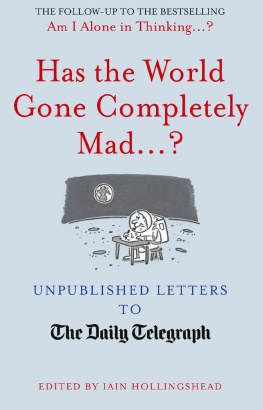
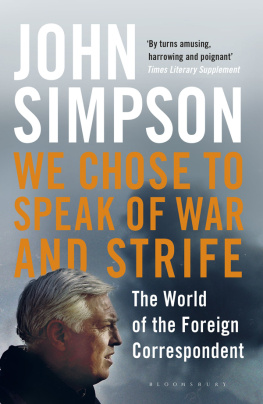
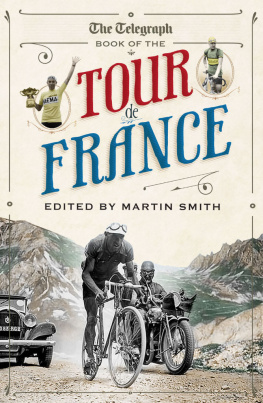
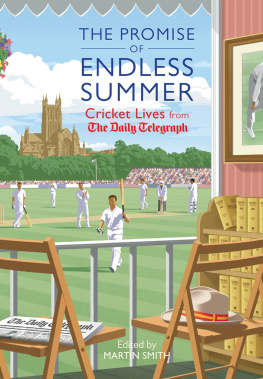
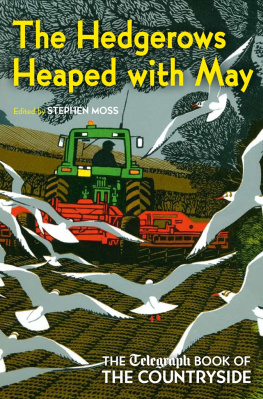
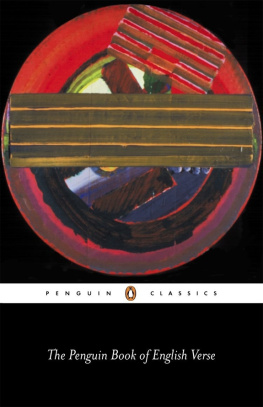
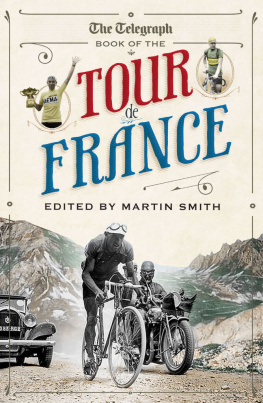
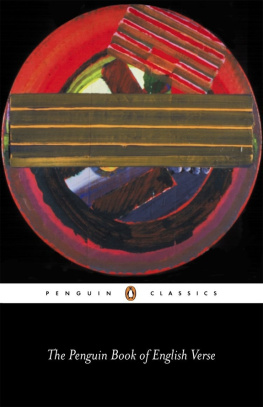
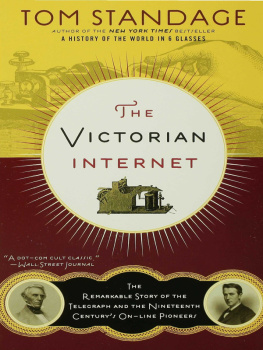


 EDITED BY
EDITED BY 
